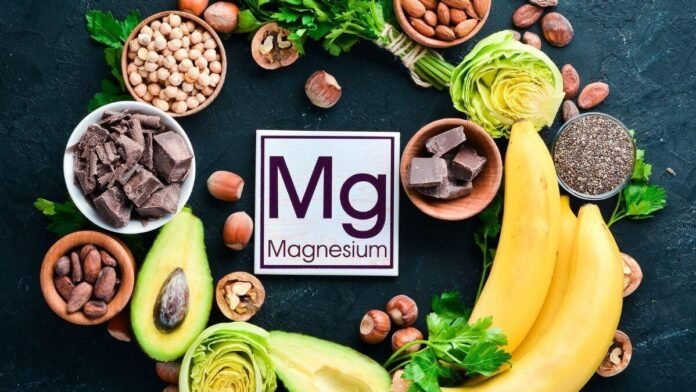Magnesium, a vital mineral involved in more than 300 biochemical reactions in the body, is making headlines for its critical role in supporting muscle performance, nerve function, and cardiovascular health. Experts warn that low levels of magnesium can trigger cramps, fatigue, mood issues, and even increase the risk of heart disease.
Magnesium and Muscles: Preventing Cramps and Supporting Performance
Magnesium plays a central role in muscle contraction and relaxation. Without adequate levels, people may experience painful cramps, spasms, and reduced physical endurance.
“Magnesium must counteract calcium by assisting in muscle relaxation. It acts as a natural calcium blocker, ensuring that after contraction, the muscle fibers can relax effectively,” researchers explained.
Athletes and active individuals are particularly at risk. Intense exercise rapidly depletes magnesium, and without replenishment, muscle fatigue and cramping are more likely.
Neurological Benefits: Magnesium and the Brain
Magnesium is equally essential for nerve function. It helps regulate neurotransmitters, the chemical messengers that influence mood, cognition, and memory.
Studies show that magnesium deficiency may be linked to higher anxiety and depression rates. Supplementation has been found to support stress management, improve sleep, and even reduce the risk of neurodegenerative diseases.
Magnesium and Heart Health

Cardiologists emphasize that magnesium is critical for maintaining a steady heartbeat and normal blood pressure. According to the American Heart Association, nearly half of U.S. adults face hypertension, a condition strongly tied to magnesium levels.
Low magnesium is also associated with arrhythmias, including atrial fibrillation. Research published in clinical journals shows that higher magnesium intake can reduce the risk of ischemic heart disease by up to 22%.
Best Food Sources of Magnesium
Nutrition experts recommend incorporating a variety of magnesium-rich foods daily:
- Leafy greens such as spinach and kale (up to 157 mg per cup).
- Nuts and seeds, including almonds, cashews, and pumpkin seeds.
- Whole grains like quinoa, oats, and brown rice.
- Legumes such as black beans and chickpeas.
Foods and Drinks That Inhibit Absorption
While some foods are rich in magnesium, others can block absorption. Excessive dairy (high in calcium), processed foods, and caffeine are common culprits. High salt intake also contributes to magnesium loss through urine.
Recognizing Deficiency
Magnesium deficiency symptoms include:
- Muscle cramps or spasms
- Fatigue and low energy
- Anxiety, irritability, and mood changes
Doctors advise anyone experiencing these symptoms to seek medical testing and adjust dietary intake.
Conclusion: Prioritizing Magnesium for Wellness
Magnesium is not just another nutrient — it is a cornerstone of human health. From supporting athletic performance to stabilizing mood and preventing heart disease, maintaining optimal levels of this mineral is essential.
Health experts encourage the public to choose magnesium-rich foods daily and monitor their intake. A balanced diet, paired with awareness of absorption inhibitors, may be the key to stronger muscles, sharper minds, and healthier hearts.


